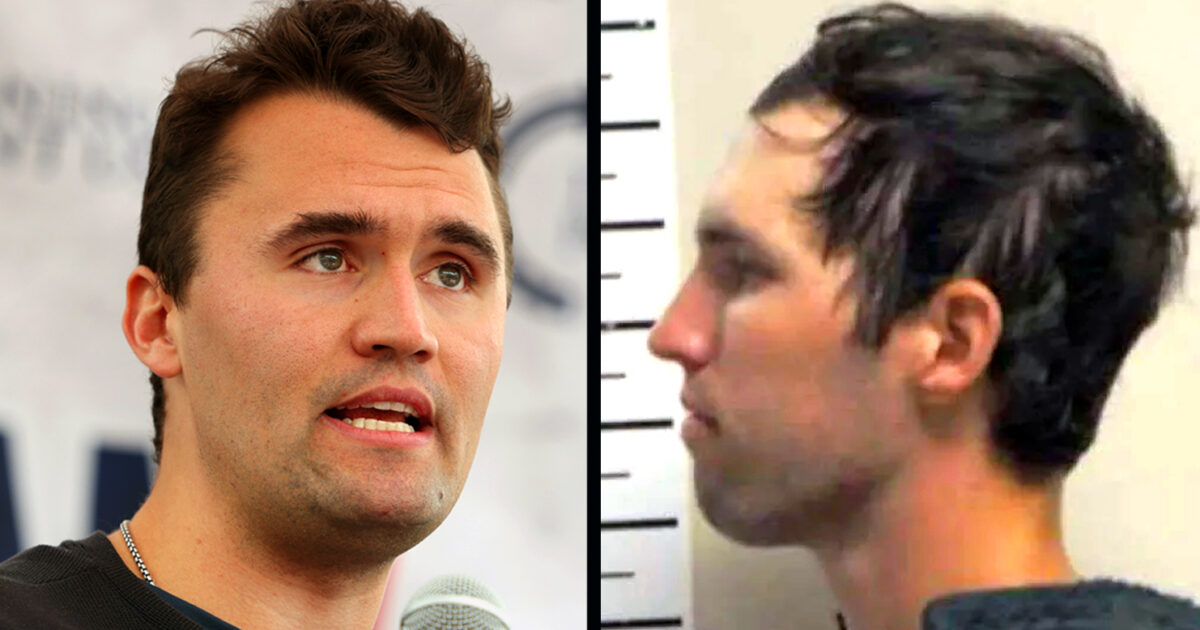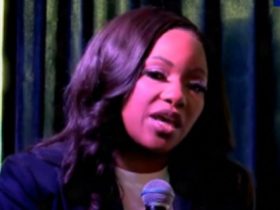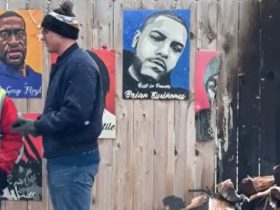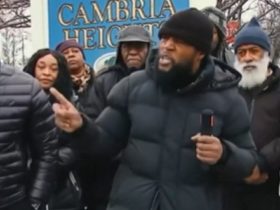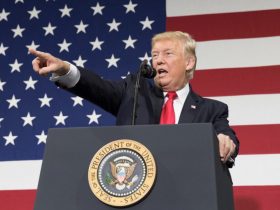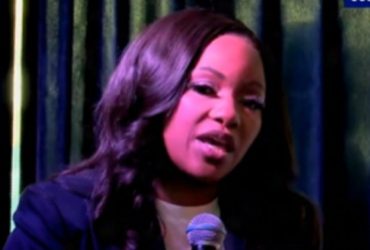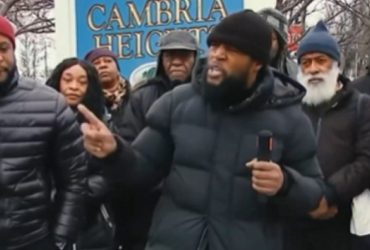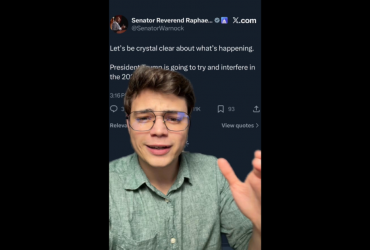Guest post by Joel Gilbert
When he was shot, Charlie Kirk was answering questions at a TPUSA campus event, engaging in the very essence of what conservatives believe in – debate. He welcomed dissent and even gave priority for those who disagreed with him to “come to the front of the line”.
“Prove me wrong” was the message emboldened twice on the tent above Charlie Kirk at Utah Valley University, signaling that an open exchange of ideas was encouraged.
(Photo by Trent Nelson/The Salt Lake Tribune/Getty Images)
For Kirk, the marketplace of ideas was central to his understanding of democracy, where disagreements could be hashed out through conversation, persuasion, and ultimately, elections.
One of the defining traits of the modern left is its emotional inability to tolerate disagreement. Rather than engaging in debate, many leftists respond with outrage, dismissal, and personal or even physical attacks when confronted with opposing viewpoints.
For leftists, political differences are not seen as part of a democratic conversation but as threats to identity or morality, making dialogue itself unbearable.
This is why conservatives so often encounter friends or relatives who walk out of a room, hang up the phone, or sever relationships when faced with views that challenge their own.
Their reaction is not intellectual but emotional, rooted in a belief that opposition to their views is inherently “hate” and therefore intolerable.
Assassin Tyler Robinson’s behavior reflects the disturbing alternative leftist view. In a text exchange with transitioning boyfriend Lance Twigg, Robinson admitted to killing Kirk and justified it by first writing, “I had enough of his hatred”.
To Robinson, Kirk’s mere act of speaking represented “hate,” making Kirk’s dialogue intolerable. In Robinson’s leftist worldview, lethal violence was a normal and logical response to disagreement with Kirk’s opinions.
Robinson’s next sentence in his text exchange with Twigg, “Some hate can’t be negotiated out” epitomizes the leftist mindset. Opposing views are inherently “hate,” so negotiation (dialogue) is impossible, and silencing becomes the only option.
While Robinson’s choice of murder was extreme, the anger behind it is not far removed from the everyday experiences that conservatives report as left-leaning individuals shut down dialogue entirely when confronted with opposing views.
This ideological divide reflects a broader cultural clash. Conservatives see speech as the cornerstone of democratic engagement, debating policies, winning arguments, and letting elections reflect those ideas.
The left, increasingly, frames disagreement as “hate,” a narrative pushed heavily since the Obama era, where dissent from his policies was often branded by the Democrats and the media as racism or bigotry rather than political disagreement.
This “hate” framing around opposition to Obama fueled the rise of cancel culture, where missteps, jokes, or even simple misunderstandings became grounds for professional and personal destruction.
Comedian Roseanne Barr’s cancellation in 2018 was the first big example. Despite her lifelong civil rights advocacy and Jewish background, a comedic political tweet ended her career. There could be no understanding nor forgiveness.
When my 2012 film Dreams from My Real Father about Barack Obama’s real biological origins and ideological roots was released, I received countless emails from viewers describing how leftist relatives would storm out of the room after just ten minutes of the film. They could not emotionally tolerate having their worldview challenged.
The Kirk-Robinson conflict played out recently in Bakersfield, California.
On April 10, 2024, leftist activist Rhiddi Patel threatened to kill the entire Bakersfield City Council, declaring on camera during a public comments forum, “We’ll see you at your house, we’ll murder you.”
She was arrested and now faces 21 felony charges, with her trial scheduled for November 10, 2025. Will a California jury convict her?
This brings us back to TPUSA. When I first met Charlie Kirk in 2012, his vision was to bring conservative ideas onto college campuses through student Q&A events. At the time, it seemed like a great idea.
But thirteen years later, the ideological climate on U.S. campuses has shifted so dramatically that TPUSA events are now met with open hostility, framed by leftist students as “provocations” that “spread hate.”
In this environment, TPUSA may need to reconsider whether its campus events approach still achieves its goals, or if it’s time to rethink the battlefield altogether.
The clash between Charlie Kirk’s open invitation to debate and Tyler Robinson’s violent rejection underscores the most fundamental divide in American politics today.
“The gun was pointed at him, but the bullet was aimed at every one of us”, President Trump said at Kirk’s memorial. One side believes free speech is democracy’s lifeblood, while the other increasingly views opposing free speech as an intolerable, even dangerous, threat.
For a democracy to survive, it requires a commitment to dialogue, persuasion, and peaceful disagreement. The alternative leads only to intimidation, silencing, and violence, a path toward civil war that threatens the republic and freedom itself.
Joel Gilbert is a Los Angeles-based film producer and president of Highway 61 Entertainment. He is the producer of the new film Roseanne Barr Is America. He is also the producer of: Dreams from My Real Father, The Trayvon Hoax, Trump: The Art of the Insult, and many other films on American politics and music icons. Gilbert is on Twitter: @JoelSGilbert
The post Charlie Kirk Versus Tyler Robinson: The Shooting Was Over the Battle for Free Speech appeared first on The Gateway Pundit.

